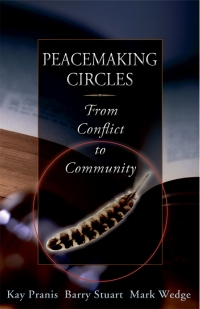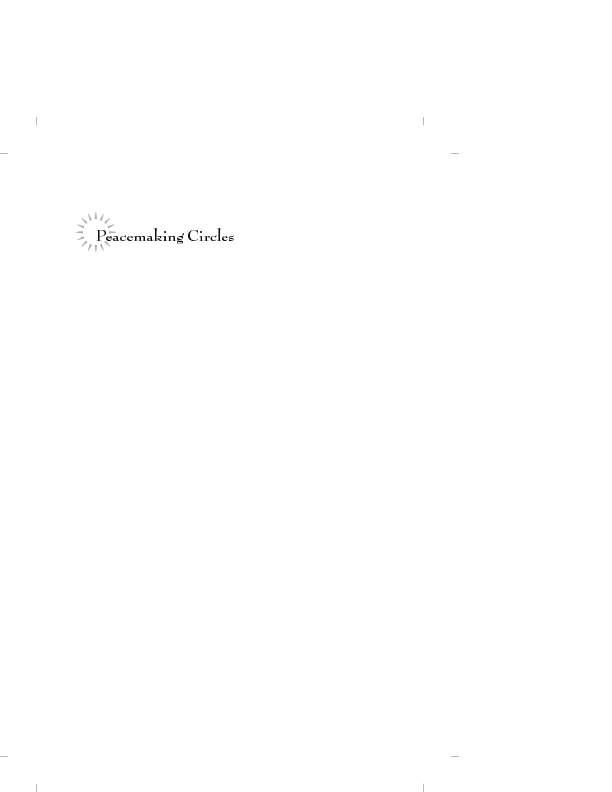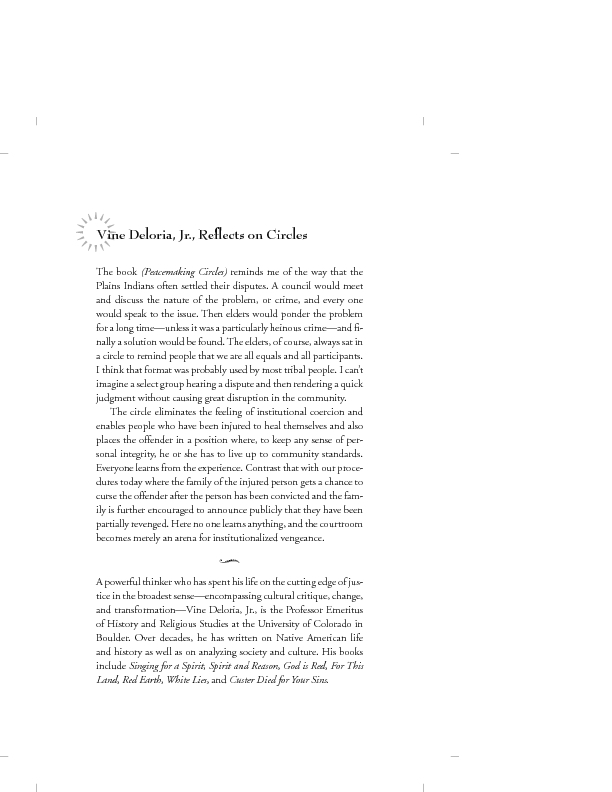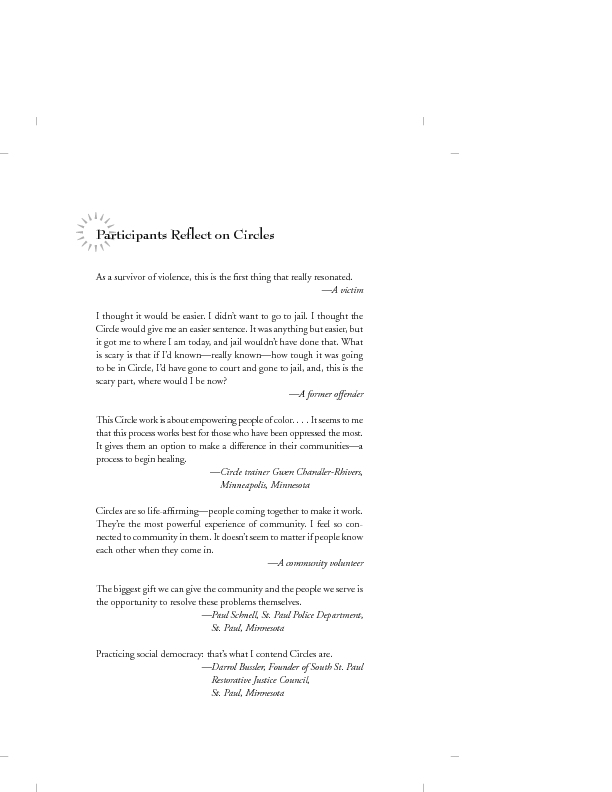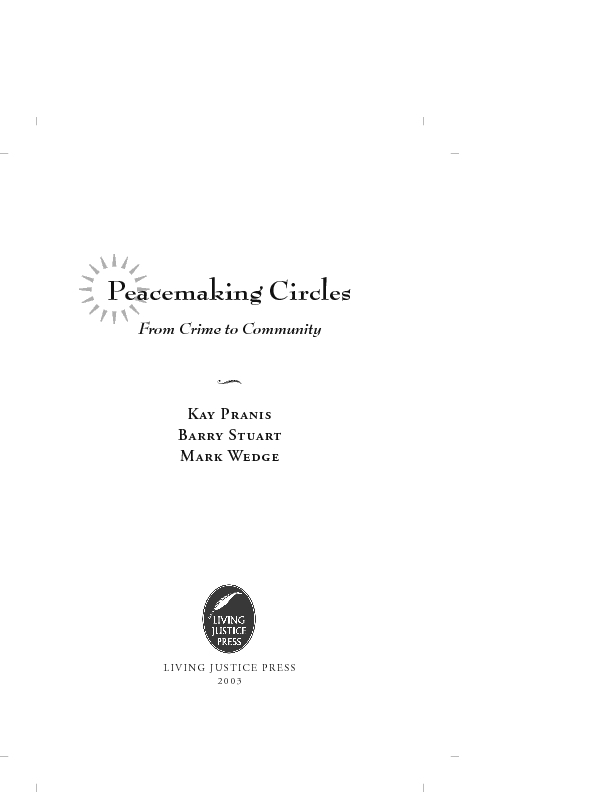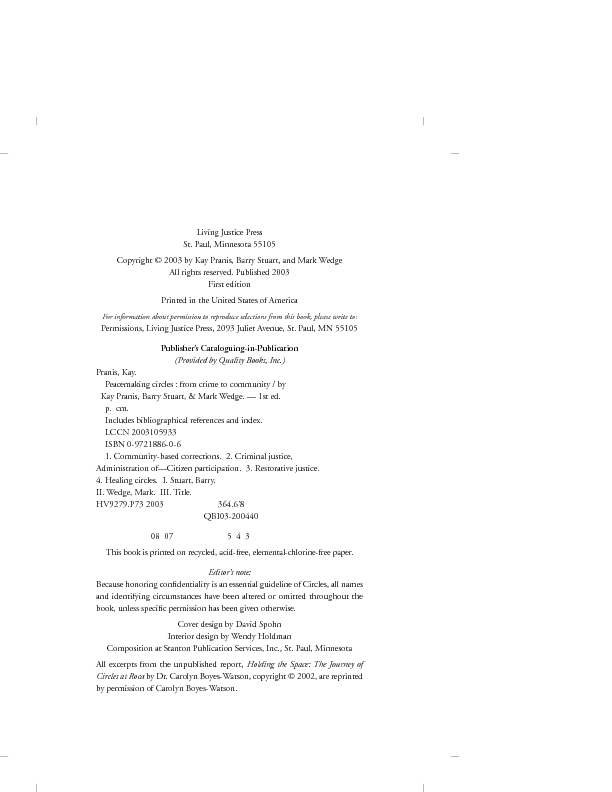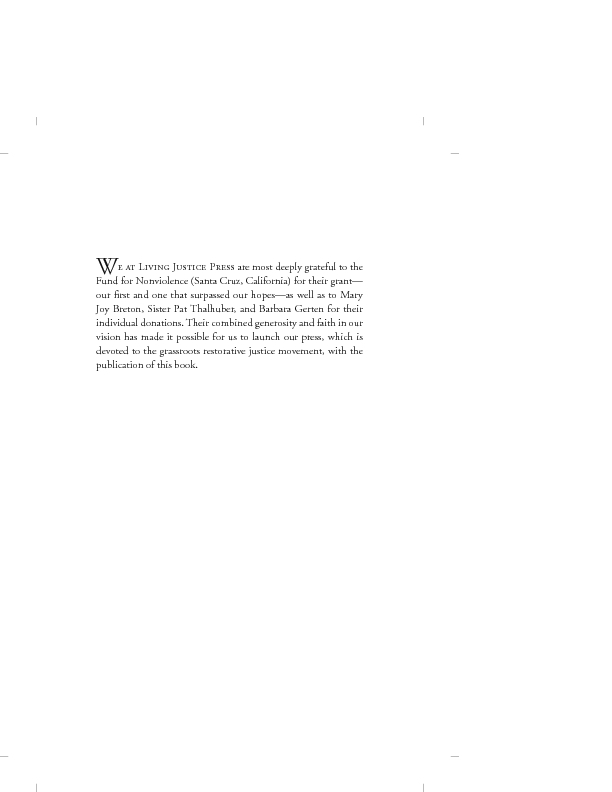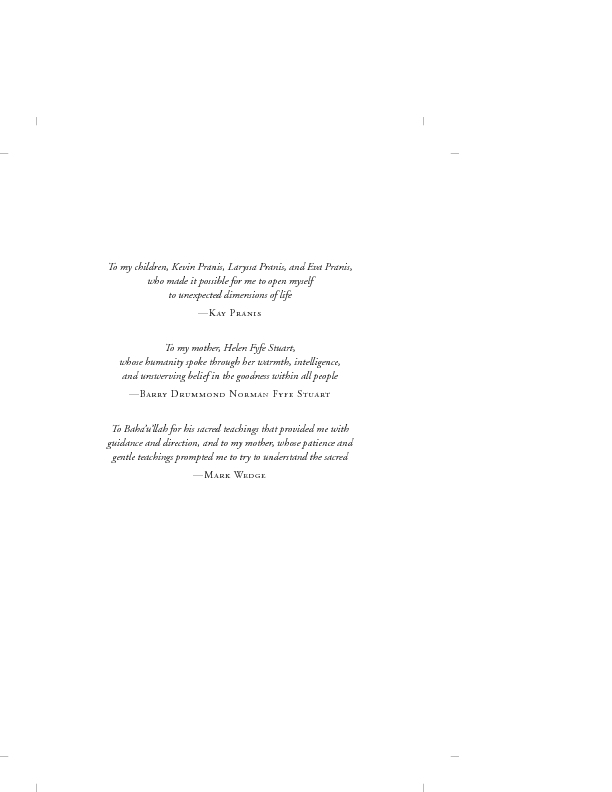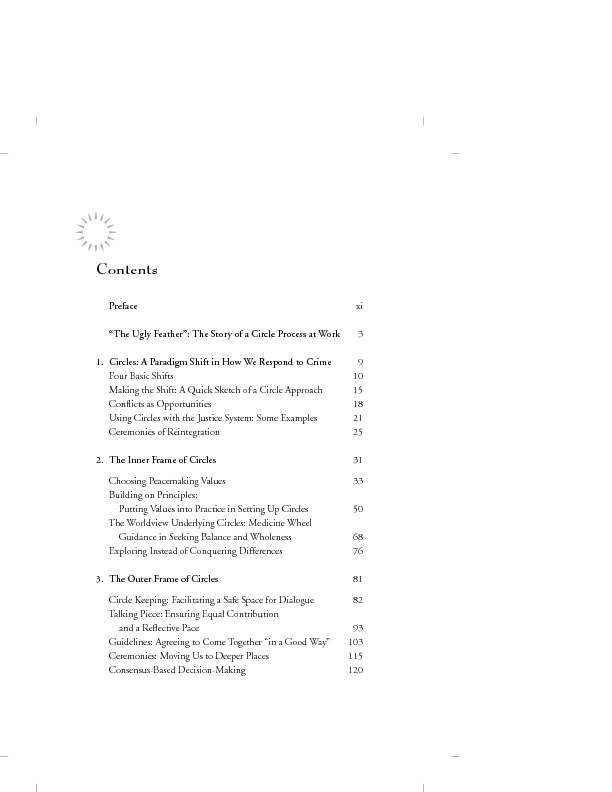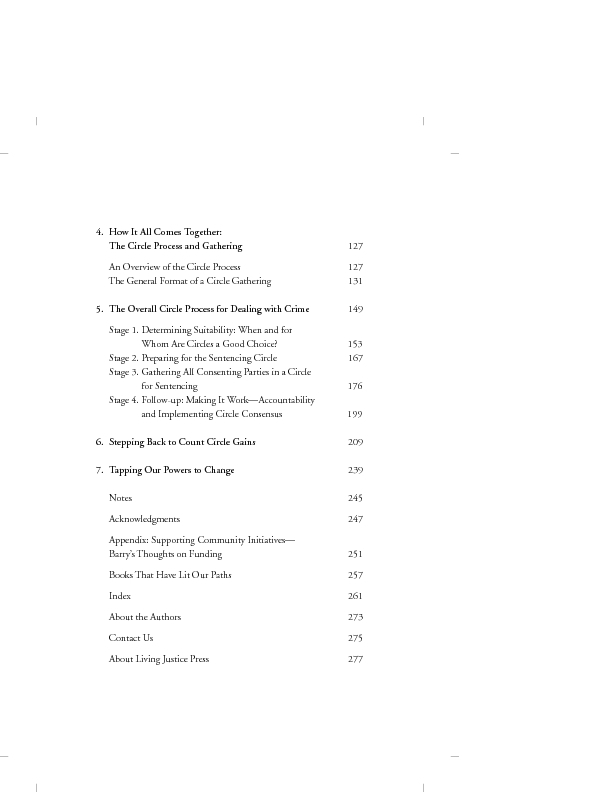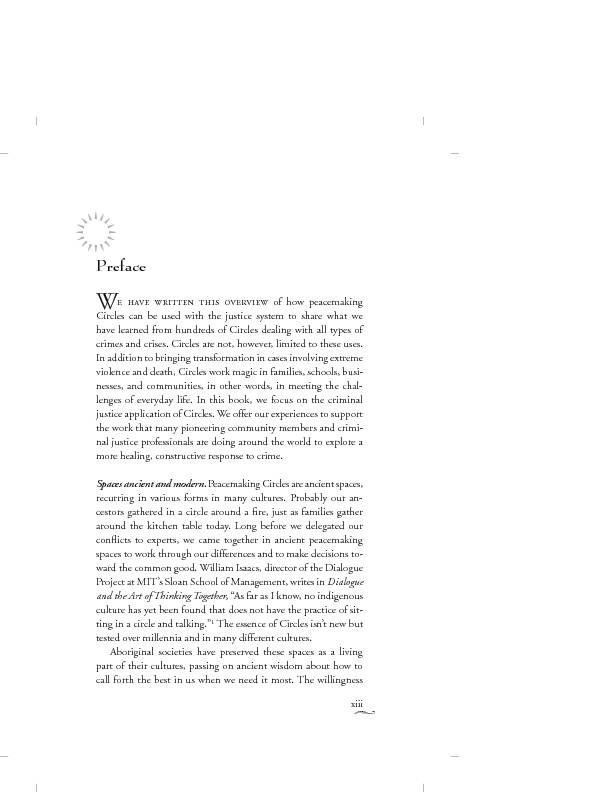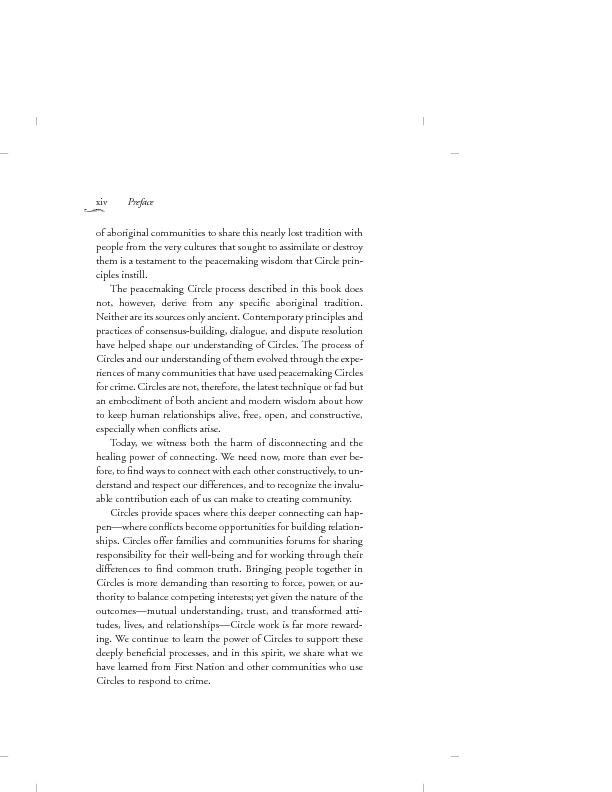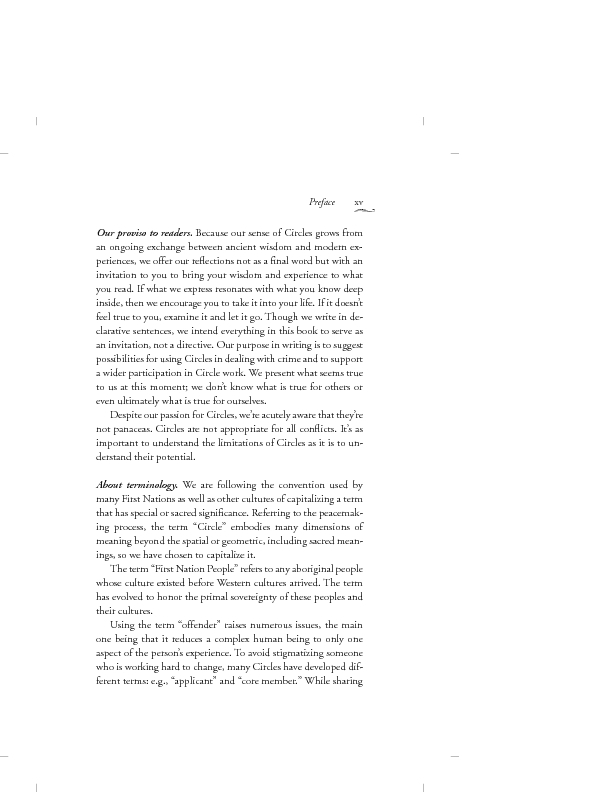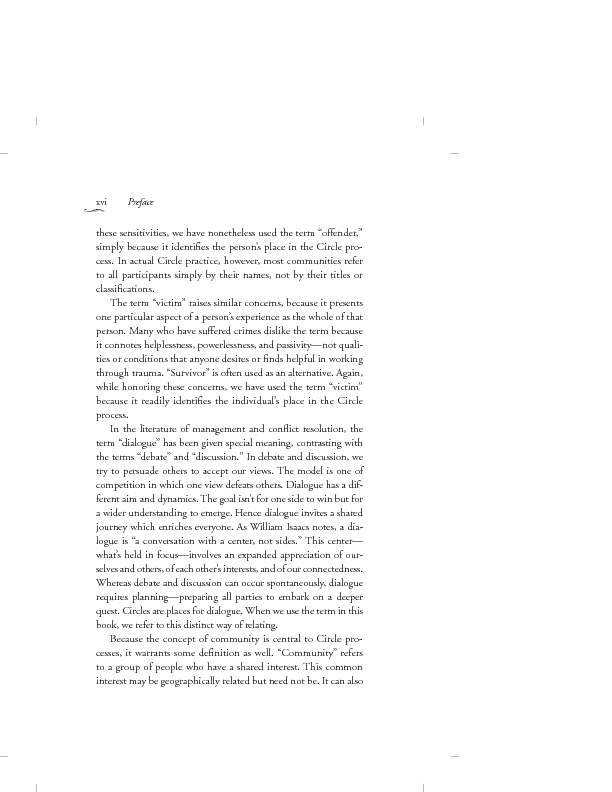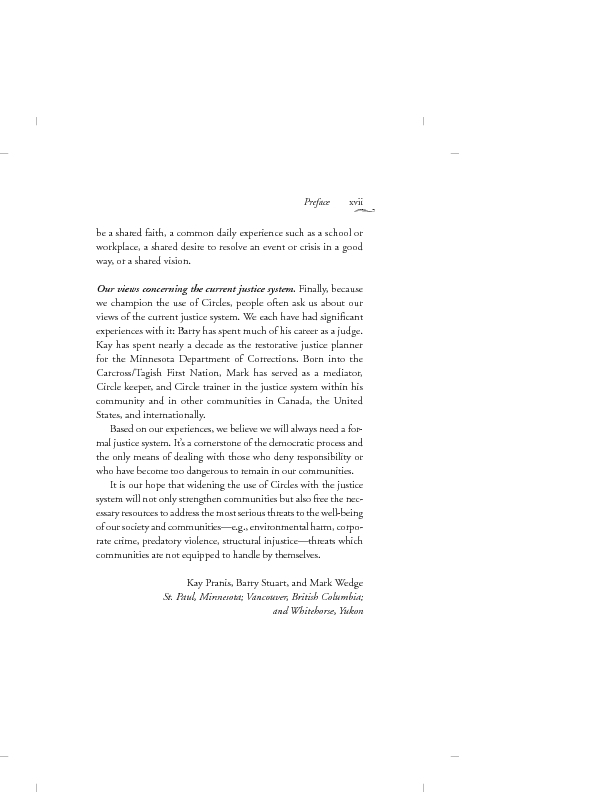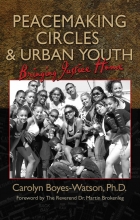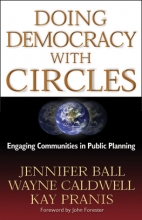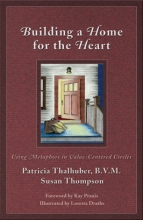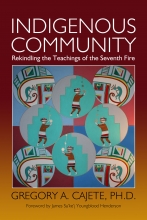Peacemaking Circles
*****IF YOU WISH TO ORDER HARD COPIES OF OUR BOOKS, PLEASE VISIT https://livingjusticepress.org*****
Peacemaking Circles
By: Barry Stuart, Mark Wedge, Kay Pranis
Peacemaking Circles lays out the core elements of the Circle process, written by leading Circle trainers and practitioners. This is the foundational text for anyone engaged in Circles or desiring to bring Circles into some area of their lives.
Title information
In this ground-breaking book, the authors outline both the spirit and the structures that make up the peacemaking Circle process as it is used in communities, schools, correctional settings, and in healing many other kinds of harms. Many stories of healing which have taken place in Circle settings are included, as well as observations from those who have been facilitating Circles for years. A time-tested paradigm for healing relationships and keeping them healthy, Peacemaking Circles explores how communities can respond to crimes in ways that address the needs and interests of all those affected - victims, offenders, their families and friends, and the community. Based on indigenous teachings combined with current research in conflict resolution, the Circle process described here builds an intentionally safe space where we can bring our best selves to some of our most difficult conversations. Though the book relates the process to criminal justice, the explanantion of Circle philosophy and practice can be readily applied to hurts and conflicts in other areas of life. Above all, the book offers a grounded vision for how we can be together "in a good way," especially when it seems hardest to do.
Barry Stuart
Barry Stuart—former Chief Judge of the Territorial Court of Yukon (now retired), a faculty member of numerous Canadian law schools, and an internationally respected leader in multiparty conflict resolution—has pioneered the use of peacemaking Circles for public processes in North America over the last twenty years. His professional interests have always centered on decision-making processes, dispute and conflict resolution, and the design and development of consensus-building processes. He has worked as a lawyer, mediator, consensus facilitator, policy analyst to government, chief land claims negotiator, professor, and speaker. In the 1970s, he played a leading role in shaping environmental law in Canada.

Mark Wedge
Mark Wedge brings a lifelong knowledge of aboriginal culture (he is of Tagish, Tlingit, and European ancestry) and broad experiences in both using and training others in using peacemaking Circles for complex issues. For 15 years, he has carried the Circle process to workplace and public forums, including not only sentencing for individual crimes but also for dealing with the outstanding issues in Canada between victims of Mission School abuse and the Anglican Church, as well as in settling land claim disputes between First Nations and the Canadian government. Serving as the spokesperson for his clan within the Carcross/Tagish First Nation government, Mark has also become involved in creating Circle-based forms of contemporary tribal governance. He currently teaches in communities throughout North America, specifically through the Justice Institute of British Columbia.

Kay Pranis
Kay Pranis is a national leader in restorative justice, specializing in peacemaking Circles. She served as the Restorative Justice Planner for the Minnesota Department of Corrections from 1994 to 2003. Before that, she worked six years as the director of research services at the Citizen’s Council on Crime and Justice. She has written and presented papers on peacemaking Circles and restorative justice in the United States, Canada, Australia, Brazil, and Japan. Since 1998, Kay has conducted Circle trainings in a diverse range of communities—from schools to prisons to workplaces to churches, from rural farm towns in Minnesota to Chicago’s South Side.

Praise for Peacemaking Circles
Howard Zehr
Author ofChanging Lenses and The Little Book of Restorative Justice
Interest in circle approaches has grown rapidly in the past decade; peacemaking circles are being used to do justice, to resolve conflicts, to deal with trauma, to build community, even to extend democracy. Yet written material about the philosophy and practice of circles has been fragmentary and scarce.
This is the circle book for which restorative justice and other practitioners have been waiting. Accessible and practical, yet solidly grounded in principle, Peacemaking Circles explains how and why circles work in terms that we all can understand and put into practice.
Christina Baldwin
Renowned author, Calling the Way and The Circle Way, and co-founder of Peer Spirit
This is an incredible addition to the literature and understanding of circle process as a tool for deep personal shift and social change. Beyond its gift to the restorative justice movement, Peacemaking Circles has widespread applicability in any sector of society where conflict resolution and accountability are called for.
Vine Deloria, Jr.
Eminent Dakota scholar, author of God Is Red, Custer Died for Your Sins; Red Earth, White Lies; For This Land; Singing for a Spirit
"The book [Peacemaking Circles] reminds me of the way that the Plains Indians often settled their disputes. A council would meet and discuss the nature of the problem, or crime, and every one would speak to the issue. Then elders would ponder the problem for a long time—unless it was a particularly heinous crime—and finally a solution would be found. The elders, of course, always sat in a circle to remind people that we are all equals and all participants. I think that format was probably used by most tribal people. I can’t imagine a select group hearing a dispute and then rendering a quick judgment without causing great disruption in the community.
"The circle eliminates the feeling of institutional coercion and enables people who have been injured to heal themselves and also places the offender in a position where, to keep any sense of personal integrity, he or she has to live up to community standards. Everyone learns from the experience. Contrast that with our procedures today where the family of the injured person gets a chance to curse the offender after that person has been convicted and the family is further encouraged to announce publicly that they have been partially revenged. Here no one learns anything and the courtroom becomes merely an arena for institutionalized vengeance."
Rupert Ross
Author of Returning to the Teachings
Peacemaking Circles: From Crime to Community may be one of those books that attract a wider audience than its publishers imagined.
On the surface, it describes the use of circle processes in criminal justice, and all three authors are eminently qualified. Barry Stuart was for many years a Judge in the Yukon, pioneering circles as a better way to fashion lasting resolutions for those personal, family and community conflicts that erupt into criminal behaviour. Mark Wedge, an aboriginal educator, healer and community activist from the Yukon, contributes his people's traditional teachings about the conduct of circles, their potential for bringing out the best in each participant and their role in re-empowering communities as problem-solvers in their own right. The third author, Kay Pranis of St. Paul, is an internationally recognized trainer in circles who joined Mark and Barry in this shared endeavour, searching for ways to articulate the power of circles to effect relational transformation among parties mired in mistrust and conflict. Together and separately, they have done circle training for justice professionals across the continent.
While some writing about circles provides little more than anecdotal glorification, this book goes to their powerful heart. It underlines the grave responsibilities of those who facilitate them, then gives practical, step-by-step guidance in how facilitators must prepare themselves, the disputants and the occasion of the circle itself if the healing potential is to be realized and potential for harm avoided.
But this is not a normal "step-by-step" manual, for it does not map the route to particular endings or results. Instead, it maps a process aimed at creating an environment in which the parties themselves are positioned to achieve their own best results. As it makes clear, facilitators within circles are not orchestra conductors manipulating instruments into a set score. To the contrary, they strive to create a setting in which each instrument, a unique human being, will search for his or her own healthiest sounds, as well as the will to meld them with every other sound, to achieve a final composition grander than the sum of its parts. Pranis, Wedge and Stuart have consistently see circles reach far beyond individual disputes to locate, nourish and engage the deepest generosity, wisdom and courage of the human beings within them. In fact, their descriptions may well take most readers beyond the physical, mental and emotional aspects of the dispute, to a place where even the most hard-hearted will start to contemplate the notion of spiritual connection between human beings.
Although this book was informed primarily by the authors' experience of circles within criminal justice, Pranis, Stuart and Wedge have been taking circles into industrial, educational and health-care settings as well. To no one's surprise, they regularly demonstrate an ability to transform "employer-employee relations" just as fundamentally as they transformed "victim-offender relations" in the criminal context. Given the importance of healthy, respectful and supportive relationships in all fields of human endeavor, no one should be surprised if this book achieves a much wider audience than its title suggests.
Truth be told, I wish I'd had it close at hand 25 years ago when I first found myself enmeshed in that strange relational chaos known as Parenting!

